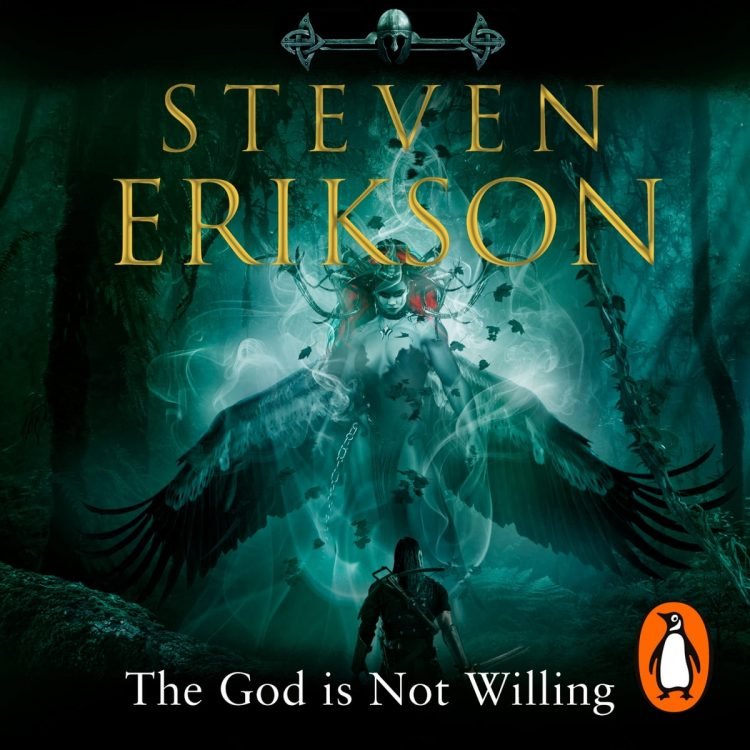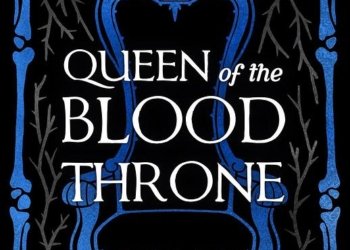No products in the cart.
The God is Not Willing by Steven Erikson (The First Tale of Witness)
I was overjoyed to hear about Steven Erikson’s “The God is Not Willing” and the possibility of returning to the Malazan universe he created. In the twenty years that I have read fantasy, very few authors have been able to hold my attention to the same extent that Erikson has.
Since Steven Erikson announced he would be returning to the Malazan Novel of the Fallen universe, very few authors have been able to generate the amount of anticipation for a new book that Erikson was able to. Even fewer writers can live up to the enormous expectations that come with such a long-awaited reappearance. Even with expectations that rise over a decade, authors who publish novels every year or so frequently fall short of them.
The Crippled God, the tenth and last volume in Erikson’s Malazan Book of the Fallen epic, was published ten years ago, and its completion set a new high benchmark for writing in general, let alone fantasy fiction.
I was palpably pleased when “The God is Not Willing” finally showed up at my door – later than I would have liked, but it’s been a year – and jumped right in. I was immediately rewarded. Because Erikson was not only able to better them, beyond all of my expectations, he was also able to meet my anticipation, which was a return to the iconic ranks of the Malazan army, replete with fresh faces and a new manner of doing things.
Not since Terry Pratchett was publishing the final dozen of his Discworld books has a writer met every expectation and promise placed on them.
Putting aside hyperbole and my own expectations, “The God is Not Willing” is, in my opinion, the best work Erikson has yet produced. It could have something to do with the book’s low page count, or it could have been influenced by nostalgia and reward. I’ll admit that I’ve only read it once, and I just completed it. But once more, given the relative length that creates a tighter-knit narrative and the more experienced author’s return to some of the most endearing and absurdly funny characters in literature, I’d find it difficult to pick a favourite among the original ten Malazan Book of the Fallen novels.
In addition, I now have no choice but to acknowledge Steven Erikson and his Malazan series as being at the top of my list of the top 30 fantasy novels, moving up from third place just a year ago and surpassing “The Raven Tower” by Ann Leckie and “The Night Circus” by Erin Morgenstern.
There are many things that can be said about the pros and cons of Erikson’s greatest work, weighing the allure of the characters, the wonder of the world building, and the suspense of the story against the dislike of some for the gravity of the work, the philosophical nature of the characters, and the sheer weight of the books. In my opinion, being aware of the issues of contention amongst fans and non-fans only serves to reinforce my passion for Erikson’s writing. However, Erikson writes a particular type of fantasy that seems custom created for me.
The God is Not Willing does tell a speedier, less drawn-out story, so one wonders if those readers who haven’t found Erikson as fascinating as I have will change their minds after reading it. There are fewer active plot threads, which limits the number of characters’ points of view we as readers can take in. In turn, keeping track of all the various plots, twists, and turns becomes simpler, and some could even argue more pleasurable.
Of course, if you compare “The God is Not Willing” to “Gardens of the Moon,” you might be able to explain this easier reading by the fact that they are both first volumes in a series, but I don’t think that’s the case. I believe that the sub-500 page count has worked in Erikson’s favour and resulted in some of his best writing ever, much to how short tales may frequently compel an author to produce their best work.
In this scenario, soldiers, a tracker, and the lifestyles of non-humans like the Teblor and Jhek are used to illustrate Erikson’s distinctive anthropological philosophising. This is in line with Erikson’s usual practise. Furthermore, despite the fact that Karsa Orlong, the Shattered God, is a central character in the new “Witness” trilogy, he has a minor part to play.
We get to spend a lot more time in the Malazan marines’ camp in its place. I believe that many of us never had the opportunity to get to know the Malazans as well as we would have liked to. I can see how this makes sense from the perspective of an author — it seems logical to follow the maxim, “leave them wanting more” — but I couldn’t care less about the author’s viewpoint; I just wanted to spend more time with the marines! I also receive my request in “The God is Not Willing,” and it is everything I could have hoped for. We don’t live exclusively with the Malazans, but we do receive far more than we have in the past.
But at the same time, we also get to spend a lot of time with people who aren’t the Malazans—their supposed enemies—and in this, Erikson’s willingness to provide opposing viewpoints, even subtly, pays off for the reader.
Erikson’s prose is exceptional, elevating what I previously thought was high complexity to a new level. Once more, Erikson’s writing has become more concise because of what appears to be a self-imposed or externally imposed page limit. But it has also improved his intelligence, wit, and humour. The Malazans are actually amusing, which I define as entirely true absurd humour. However, the Malazans also possess a parallel pathos that only serves to intensify the emotional effect of their deeds. They are simultaneously and captivatingly human and inhuman because they are irreverent, violent, and extremely sensitive and compassionate.
Similar to how those opposing the Malazans are written and developed, they offer a stark contrast to the Malazans’ civilised compassion by offering what is ultimately a no less valuable investigation of human uncivilization.
You won’t, in the end, find a better book to read—not only a better fantasy book, but a better book overall. I also recommend picking up “The God is Not Willing” if you haven’t yet dipped your toe into the Malazan world created by Erikson and writing partner Ian C. Esslemont. It is a literary high point because it is stunning, alluring, and absolutely engrossing. In terms of the breadth of his imagination and the skill of his prose, Erikson is unmatched, but more significantly, he is just as perceptive and humorous as Terry Pratchett ever was.
The Review
The God is Not Willing
9 Score
In a story more narrowly focused than one expects from this amazing author, Erikson once more brings to life a set of souls that the reader becomes a part of. Prepare to laugh and mourn in honest attachment to this host of characters brought to life by Erikson.
PROS
- Best Malazan Book yet!
- Back to Core Malazan, an amazing tale for fans
- Phenomenal. Erickson is the peak of epic fantasy
- Awesome new adventure for Malazan marines and Karsa Orlong's bastard son!
CONS
- First Erikson Malazan Disappointment
- All talk, no show - a disappointment
- Not as bad as feared, still somewhat disappointing.











